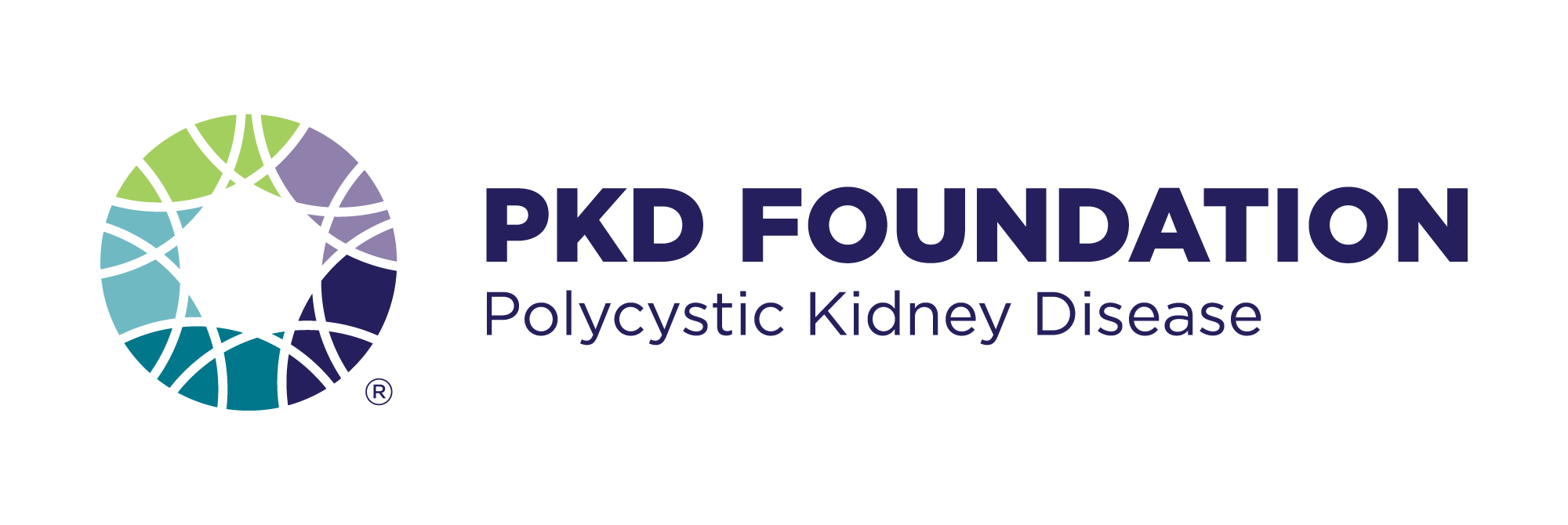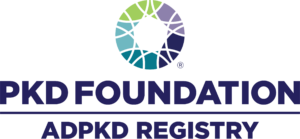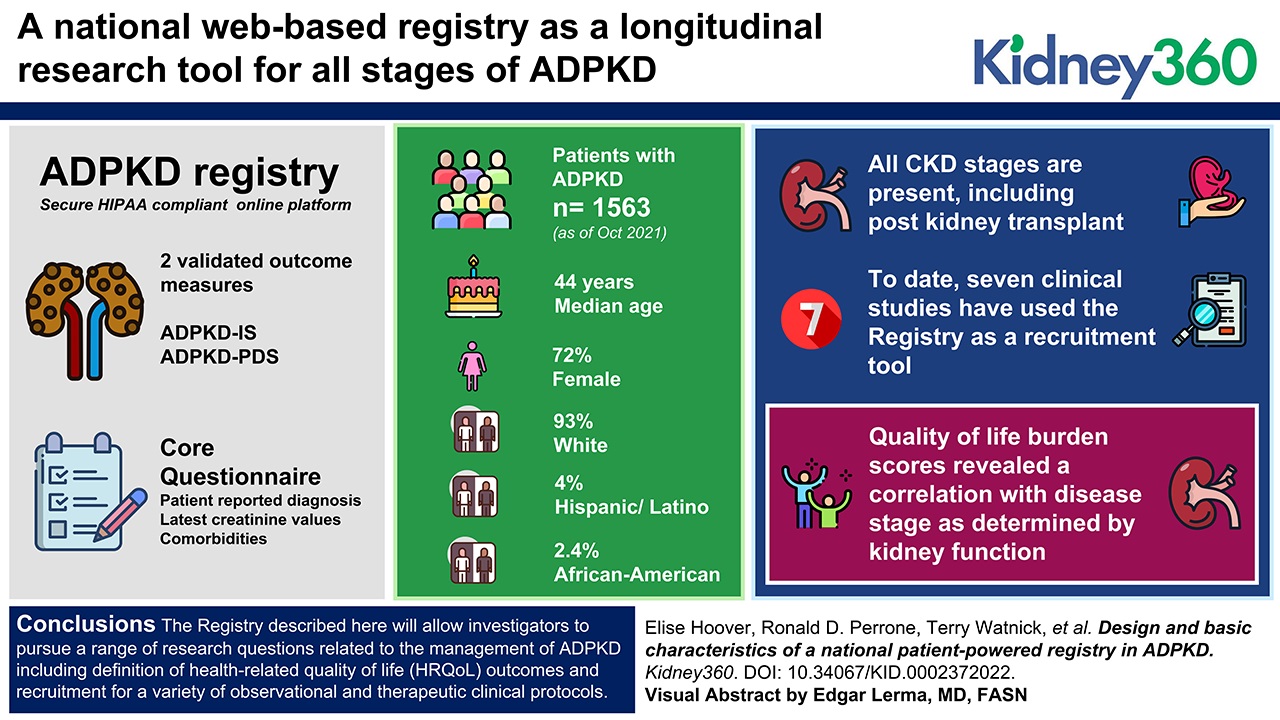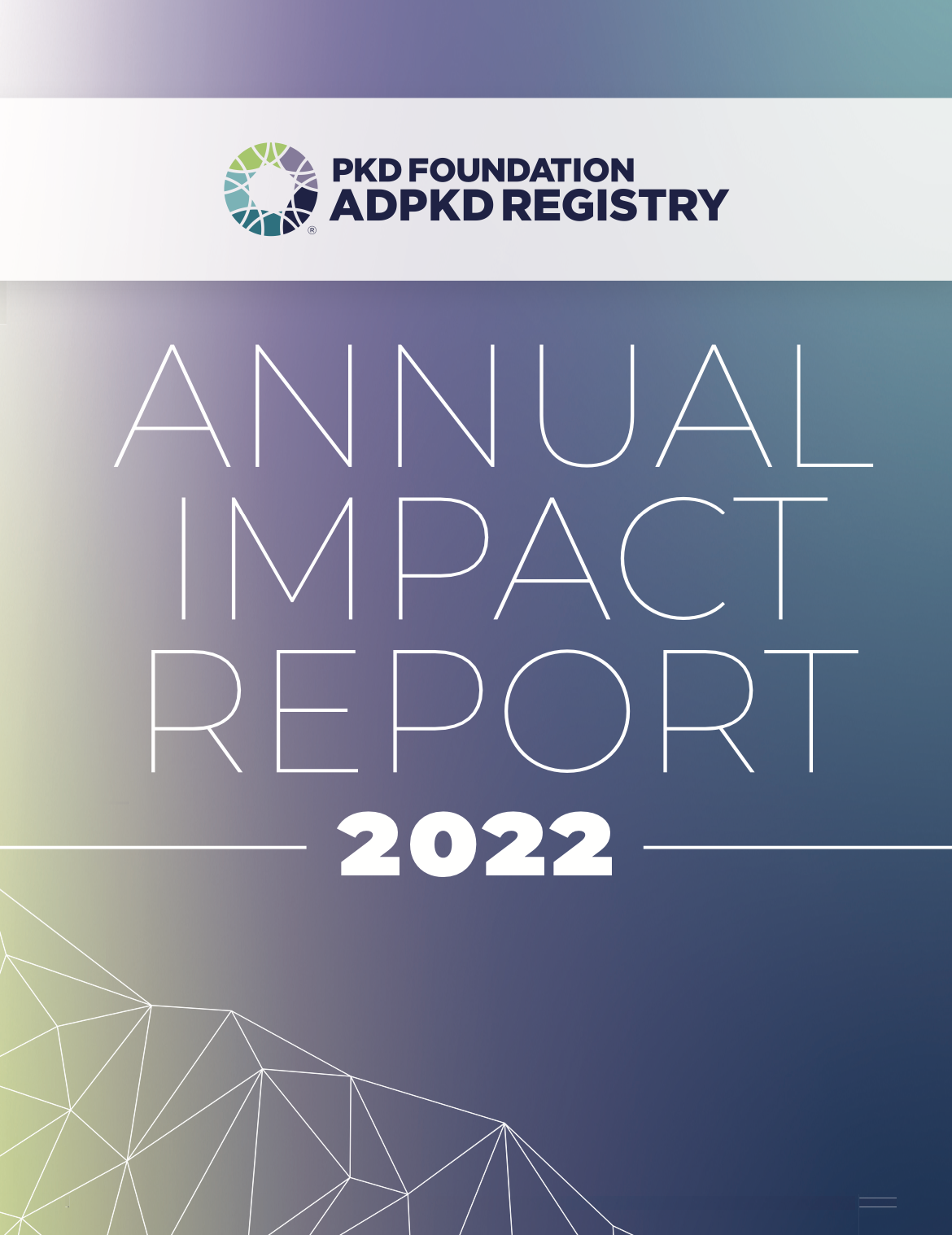What is ADPKD Registry?
The ADPKD Registry is a collection of individuals with autosomal dominant polycystic kidney disease (ADPKD).
Participants…
Answer survey questions
Answer questions about your experience with ADPKD
Keep information current
Update us on symptoms and quality of life
throughout the year
Take part in research
Find out about research studies for which
you might qualify
Share health records
Share clinical data by linking your provider
health records.
We’re breaking ground with electronic health records.
Why should you join?
Your experience is vital
PKD patients are experts of their own disease experience. This Registry is patient-powered and patient-directed. By answering questions about your health and linking your provider health records, if you choose to do so, you’re helping us create a key resource for researchers to better develop outcomes that reflect patient perspectives.
Power in numbers
The Registry is the first North American database of patients with ADPKD and one of the first registries to integrate provider health records. With your help, we can collect important clinical data and learn about the patient journey, including unmet medical needs, patient preferences and the disease burden on your life and your family’s life.
Advance research
There are estimated to be more than 600,000 Americans with ADPKD, but never before has a nationwide resource connected PKD researchers with people interested in participating in research. By joining the ADPKD Registry, you enable us to identify studies you may be eligible for and share information on how to participate.
It’s secure and easy to participate
The Registry is hosted on a secure platform that follows comprehensive measures to protect your information. Joining the ADPKD Registry involves three steps:
- Create an online account
- Agree to an informed consent
- Complete the core questionnaire
This can all be done online and from the comfort of your own home on your computer, tablet or mobile phone.
What should I expect once I log in?
When you log in, modules will be featured on your homepage to ask about your experiences with PKD. You can also link your health records through your provider’s online portal by clicking on “My Care Network.” Our third-party partner, 1UpHealth, ensures data security. And because your name will be separated from your clinical data and questionnaire answers before they are shared with researchers, your privacy is carefully protected.
Core questionnaire
Your medical history. 10-15 minutes.
This module asks about your personal medical history and will take about 10–15 minutes to complete. Please make sure you know your:
- Most recent kidney function lab values (creatinine and eGFR).
- Year of diagnosis
- Name of your physician and medical center
- Month and year you began medication for high blood pressure (if applicable)
Pain and discomfort scale
Your experience with pain over the past seven days. 5-10 minutes.
This module asks about your personal experience with pain over the past seven days and should take 5–10 minutes to complete. Your answers help us understand your pain (dull pain, sharp pain, and discomfort) from PKD.
If you are a transplant patient and have had your PKD kidneys removed, this survey may not apply to you.
Vascular outcomes
Your experience with brain,chest, or abdominal aneurysms. 5-15 minutes.
This module asks about your experience with brain, chest or abdominal aneurysms and could take 5-15 minutes, depending on your history
Make sure you know:
- How your aneurysm was diagnosed or screened for (if applicable)
- The size of your aneurysm, and treatment methods (if applicable)
- Your family history of aneurysms
Family history
Your family history of ADPKD. up to 25 minutes.
This module asks about your family history of ADPKD and should take up to 25 minutes, depending on your familiarity with your family’s experience with PKD. Think only of people you are related to by blood including those living or deceased.
Diet and lifestyle
Your diet and lifestyle. 5-10 minutes.
This module asks about your diet and lifestyle and will take about 5–10 minutes to answer. We’ll ask about:
- Any dietary supplements you take (ex: fish oil, folic acid)
- Alcohol and caffeine consumption (coffee, tea and soda)
- How much water you drink on an average day
- Exercise habits
- Food you exclude from your diet (ex: meat, eggs, salt)
Healthcare access and utilization
Your experience accessing care for your PKD. 10-15 minutes.
This module asks about your experience accessing care for your PKD. It will take about 10-15 minutes to answer these questions. We will ask about:
- The clinicians who manage your disease
- The challenges you may have faced affording and accessing:
—Medications
—Procedures
—Dialysis and transplant services
—Other medical costs
ADPKD impact scale
Your experience with PKD over the past two weeks. 5-10 minutes.
This module asks you about your personal experience with PKD over the past two weeks and will take 5–10 minutes to complete. Your answers will help us understand how physical, emotional, and fatigue impact your PKD.
Experience with liver cysts
Your medical history with liver cysts. 5-10 minutes.
About your medical history with liver cysts (5–10 minutes)
Make sure you know:
- How your liver cysts were discovered
- Issues you believe to be due to liver cysts
- Medication you’re taking for your liver cysts
MY CARE NETWORK New!
Share ongoing clinical data by linking your health records. Learn more >
Research findings
PKDF presented a poster at the American Society of Nephrology’s 2020 Kidney Week, along with members of the Patient Registry Advisory Committee.
FAQs
What is the Registry about?
What do Registry participants do?
- Connect with researchers and express interest in taking part in certain clinical studies for ADPKD, including studies of new medications and other treatments.
- Take confidential health-related surveys. These surveys are aimed at better understanding of the health of people with PKD across their lifespans.
- Provide access to health records. This data will allow analysis of trends of disease over time and other factors that might accelerate or slow progression.
Am I eligible to enroll?
- Principal Investigator Lisa Guay-Woodford, MD (202.476.6439, lguaywood@childrensnational.org) or
-
Research Coordinator Jasmine Jaber (202.476.2838, jjaber@childrensnational.org) or
-
Research Coordinator Elena Gibson (202.476.2197, egibson@childrensnational.org)
Should I join if I am post-transplant?
Yes! Your data is valuable to research regardless of whether you have had a transplant and/or no longer have your PKD kidneys.
Who is paying for the Registry?
The Registry is fully funded by the PKD Foundation and there is no charge for participation. Support for the Registry may come from individual donors, other foundations, corporations, pharmaceutical companies, or other collaborators.
Will being in the Registry help me?
- Studies and clinical trials you’re eligible for
- Research findings, including new discoveries
- By taking surveys, you may learn how your answers compare to other PKD patients
- By providing access to your health records, you will receive an Enhanced Care Summary that may inform conversations with your doctor
I have my Registry password and login information, but I can’t login. What should I do?
In August of 2023, the Registry moved to an upgraded platform. In order to protect your information, account passwords were not able to be transferred over. Therefore, your password needs to be reset. If you haven’t logged in since before last August, please select “Forgot Password” and follow the steps to be able to access the ADPKD Registry. If this does not work, please contact research@pkdcure.org.
How long will I be in the Registry?
What types of data are collected in the ADPKD Patient Registry?
- Socio-demographics
- Medical and diagnosis
- Treatment and PKD progression
- Management of PKD-related symptoms
- Quality of life
What kind of data will you collect from my health records?
- Details of ADPKD diagnosis and progression
- Current medications
- Vital signs from your clinic visits (such as blood pressure)
- Names and specialties of your health care providers
- Past and current related lab results (such as kidney function blood and urine tests)
- Other potentially related health conditions
We will not collect information that is protected b y law, such as mentla health, HIV status, or history of substance abuse.
How is the data collected?
Do I need to come in for study visits?
Do I have to be in this Registry?
Is my information secure?
How will I learn about clinical studies?
Who will be able to see the information I provide the Registry?
We’re using a platform that separates all identifying data and stores it in a secure place. Only authorized people who work in the Registry can access that identifying information, and it will not be shared. This information includes name, date of birth, address (we only share city and state) and contact information. When we share information for research purposes, no one is able to identify you or your family based on your health records or your answers to our surveys. If a researcher wants to access your name or other identifying information, the Registry staff will ask your permission first.
What if I’m already enrolled in a local registry or clinical study?
You may participate in more than one registry. The ADPKD Registry may coordinate efforts wtih other studies and databases. If that happens, you will be asked to provide specific permission for your information to be included.
What if I have questions?
You can ask questions about the Registry at any time. Call the PKD Foundation’s PKD Hope Line at 844.PKD.HOPE (844.753.4673). Or email registry@pkdcure.org.
How do I sign up?
Sign up online here. You’ll be asked to create an online account and agree to our consent form. Once signed up, you’ll be asked to complete a few questionnaires about your diagnosis, symptoms, and family history.



